The band America had an amazing string of harmony-rich hits including “Horse With No Name”, “I Need You”, “Ventura Highway”, “Tin Man”, “Lonely People”, “Sister Golden Hair”, and “You Can Do Magic”.
America formed in England while the members’ fathers were there as Air Force personnel. The core of today’s America is original members Gerry Beckley (vocals, guitar, keyboard) and Dewey Bunnell (vocals, guitar); the other original bandmember Dan Peek left the line-up in 1977, and passed away in 2011. By now the band has released over 20 albums, starting with their debut in 1972.
This interview with Gerry Beckley was for a preview article for noozhawk.com for the America concert on 4/21/17 at Chumash Casino in Santa Ynez, California. It was done by phone on 4/11/17. (Travis Schneider photo)
Jeff Moehlis: What can people look forward to at the upcoming concert?
Gerry Beckleyx: We always make sure to play all of the hits, and there’s quite a few of them so it makes for a great evening of familiar tunes. But every year we go through the set and come up with some new things, some album cuts, a couple of surprises that we don’t like to give away before the show.
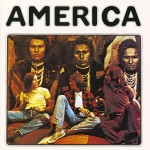
JM: What are your reflections on the first album, which recently turned 45 years old?
GB: I just finished a book called 1971 [“Never a Dull Moment: 1971 – The Year That Rock Exploded” by David Hepworth], and the album was mentioned in that. But the point of the book was it was such a great year in many ways in the music business – some very pivotal work. So we’re just really elated to have been a part of that generation. And I consider the first album of ours to be a pretty valid contribution to that whole time.
JM: Of course that album includes your song “I Need You”, which ended up being a Top Ten hit. How did that song come together?
GB: It’s one of the first songs I wrote. I wrote it when I was sixteen. It’s just a very simple ballad. Structurally, at the risk of getting into too much detail, there’s some pretty interesting stuff that goes on in that for a sixteen year old.
But another thing about that song, I think it’s been our most covered tune. There’s a lot of really beautiful cover versions, if you want to dive into those.
JM: Do you have a favorite of those cover versions?
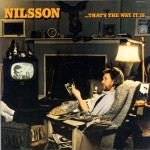
GB: No, but I have a story about Harry Nilsson. The late Harry Nilsson was a dear friend of ours, he was going to record “I Need You” as his follow-up to “Without You”. We knew Harry, and said we’d just be honored, that’d be great. But then it became our second single, the follow-up to “Horse [With No Name]”, so he had to scrap the plans. He did eventually cut it years later, but I always felt it would’ve been great to hear his version at that time, in 1972. When he was working with Richard Perry he was really on a roll.
JM: From the start you guys had such cool vocal arrangements. How did those typically get worked out?
GB: Both Dan and I were pretty good at harmony structures, and Dewey is a fantastic singer with great pitch. First of all, to do harmonies you’ve got to have guys that are pretty good at pitch, so you don’t start wandering into each other’s areas. But we had a lot of great teachers. We studied all the music of our generation – The Beatles and The Beach Boys – and they were of course both very much into harmony.
JM: For a string of albums you had George Martin as your producer. How did that happen, and what was it like working with him?
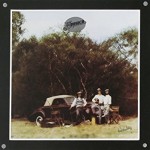
GB: George started with our fourth album. We had been self-producing, and were successful at it – we had quite a few hits, but it was becoming a bigger and bigger chore to fit it into the year of touring and other commitments. So we thought we should probably turn this over to somebody. Who could we use that we would really trust? And we made kind of a mental list, a very short one, with of course George at the top. It never got past the top of the list. We went to him and he said he’d love to do it. And the very first album we did in thirteen days with him, and it included “Tin Man” and “Lonely People”, and we were off on a pretty good roll.
JM: Along with George came Geoff Emerick, who of course also worked with The Beatles. How did Geoff contribute to the recordings?
GB: I’m glad you mentioned that, because Geoff was really this complete added bonus. We were very familiar with Geoff’s work, but didn’t know that George was still working with him. Geoff is a good friend still to this day, and at his house here in California he’s got three Grammys on the mantle for Best Engineer – they are for Sgt. Pepper, Abbey Road, and Band on the Run. So it’s a fantastic legacy he has. He was just a very integral part of the package. Geoff got the sounds, Geoff kept all of the technical aspects moving along seamlessly. George was clearly far more of an ideas and a focus guy. He was not concerned with how much top end the hi-hat should have, or something. Geoff was just incredibly valuable.
JM: Geoff gave a talk once at Cal State Channel Islands that I went to, and everyone was asking him about The Beatles. I asked him about The White Album, and he said that he’d never actually listened to it in its entirety because it was such a tough time with the band. Of course he did a lot of great stuff before and after that.
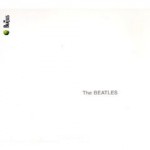
GB: You know, it’s an interesting story. Clearly if you’re a Beatles nut you know all of these things, but Geoff left during The White Album. It was just becoming too much pressure for him personally, and Ken Scott stepped in, and so there were a few different engineers on The White Album. So I can understand why Geoff might not want to dive in and rekindle those memories.
Ironically, our very first album was engineered by Ken Scott. So we ended up working with both of them, which is pretty far out.
JM: During the George Martin – and Geoff Emerick – years, America recorded your song “Sister Golden Hair”, which was a huge hit. How did that song come together?
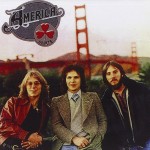
GB: I had that song for quite a while. It was written and demoed before the Holiday album, but I was happy with the songs I had selected for Holiday, and we really didn’t need any more material. But clearly it was near the top of my pile for the next album [Hearts]. Because we were doing one a year. I had both “Sister Golden Hair” and “Daisy Chain” ready for that album. It was a very big album for the group, but also for myself since “Sister” was our second Number One record. You know, there’s obviously a lot of George Harrison [influence] on that one with the 12-string opening and the slide guitar and stuff. We’ve never made any secret of how much we looked up to both The Beatles and The Beach Boys.
JM: It also seems to have a Jackson Browne vibe.
GB: Yeah, kind of around the same time we toured with Jackson, and there was just quite a bit of that style, in how the lyrics roll. Jackson is to this day an incredible writer. Yeah, you can hear that in there, too.
JM: Here’s maybe a silly question. America had a string of albums that started with the letter “H”. Is there a story behind that?
GB: There is a story, but it’s kind of a silly story. The first album was called America. The second one we called Homecoming because we had returned to the States. The third one was called Hat Trick, because it was our third album in a row. By that point there were starting to repackage the first album, and it said “Horse With No Name”. So in a sense we had these three H’s. When we noticed that, we thought, “Hmm”.
So for Holiday, when we went over and worked with George in the U.K., we started to understand that that would make a little bit of continuity in the titles. There were no hidden messages or anything. Our friends in the group Chicago were numbering things, and we thought, “Well that’s handy.” You don’t have to sit there and have a big debate for every project over what you were going to call this. It’s not a fundamental building block, but it’s a piece of the puzzle if you think of any of the great albums.
I think Abbey Road was going to be called Everest, for one reason because of the monumental nature of getting the band back together for that final Beatles album. But I think also it was the brand of cigarette that Geoff Emerick smoked. There’s always a little anecdotal element to what the title is. For ours, it narrowed our choices, until we ran out of H titles. Then we kind of cut that out.
JM: For at least one of the “H” albums – Hearts – I read that the cover was designed by Phil Hartman, who went on to do comedy and acting. Did you interact with him at that time?
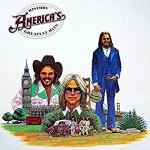
GB: He was a dear friend. He was our art director. He worked out of office. His brother John Hartmann was half of the Hartmann & Goodman management team. So Phil was an incredible artist, and did not only our covers but quite a few other people in the office – Crosby, Stills & Nash and Poco. Phil Hartman did the illustration that is the Greatest Hits, our History cover. So, you know, he was a very talented man that was working evenings at the Groundlings theater in L.A., and of course he went from there to do Saturday Night Live where he was such a great success for many years. It’s just a tragedy, the whole Phil Hartman drama.
JM: Definitely. So in addition to America’s recordings, you sang on various other things. One that jumped out at me was the Beach Boys song “Sail On, Sailor”. How did you get that gig?
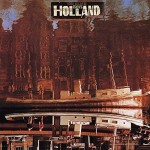
GB: We met The Beach Boys very early. They came to England when we were still living there to promote… We were huge fans of all their records, but Surf’s Up really made a mark on us, and the follow-up to Surf’s Up was something called Carl and the Passions: So Tough, and they came over to the U.K. to promote it, and I believe we met them through Derek Taylor who had been their press officer for years and now was one of the Vice Presidents of Warner Brothers in the U.K. So we just got to know them, we followed them around.
We then went over to Holland, because we were doing a lot of gigs over there, and television shows and stuff. And we went to the studio where they were recording Holland, but I didn’t sing on that trip. It wasn’t until they came back to the States, and what the label said to The Beach Boys is, “This is great, but we’re not so sure there’s a single. Can you go back in?” Well, they went back in to the studio in Santa Monica to do some of the other tracks, and that’s where I sang on a few songs on the Holland album. It’s just an honor, and by that point they were good friends. Carl [Wilson] and Bruce Johnston and Billy Hinsche had sung on our Hat Trick album, so we had already started a precedent of singing on each other’s stuff.
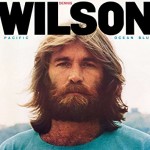
JM: You also sang on Dennis Wilson’s solo album Pacific Ocean Blue, which is kind of a lost classic. What do you remember about those sessions?
GB: Well, The Beach Boys had moved that studio [Brother Studios] down to Santa Monica, and it was a fantastic facility. They cut quite a few things there. There was always something going on – I think 15 Big Ones, The Beach Boys’ album, was done there. I actually demoed some things, started to use that as one of my places to go to. I was working a lot with Ricky Fataar – I’m not sure if he was still drumming with The Beach Boys at that point. And Dennis was starting to record his own things, and so we were of course close with Dennis, and I sang on quite a bit of that.
JM: Maybe at another end of the spectrum, I also read that you sang on some songs by The Chipmunks and The Simpsons, which I think is kind of cool. How did you get involved with those?
GB: Yeah, they’re similar to The Beach Boys [laughs]. Well, I did a lot of work as a session singer in the somewhat limited gaps. It’s interesting because you can tell people about your whole art of 30, 40, coming up to 50 years, but when you say you’re a Chipmunk they kind of stop and go, “What?! Far out!” [laughs]
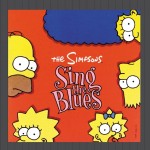
It turns out that a good friend of mine John Boylan was producing a lot of things. He produced the first Simpsons album, which had a huge hit on it, and I did some sessions on it with him and Timothy Schmit and the late Andrew Gold. I did a lot of vocal sessions with these guys and with other people, and because The Simpsons album was a hit, I think the Sesame Street organization said, “Who produced that album?” So John got that job, so I was on some Sesame Street projects. And then The Chipmunks, when they were being relaunched, he got that gig. So I ended up singing on a lot of cartoon and animated things.
JM: What advice would you give to an aspiring musician?
GB: First of all, if you’re a writer – because I’m often asked that, “What do you say to up and coming songwriters” – I usually say to follow your heart. Meaning that there’s going to be a lot of pressure and effort that you’re going to make or other people are going to make, in theory, on your behalf about what you should do. “You know what you ought to do, you ought to do this”. I’m not saying that advice like that isn’t valuable, but at the end of the day, if you are writing something from your heart, and you know it is coming from your DNA – there’s going to be a lot of stumbles and unsuccessful journeys along the way – and you know that if it’s truly your own making, then I think it’s a little easier to put it down and move on and stuff, as opposed to some A&R guy that said, “I want you to cut this, I want you to cut that.” I’m not saying that success can’t come from that avenue, but writing, I think, is just an incredibly personal gesture. Even if it sounds weird, if you know the story you’re telling, it’s true to you. It doesn’t mean that it’s verbatim something from your growing up, but just that it all rings true to you. You’ll feel a lot better about the work.
The other thing, and this is something I have said to both of my boys as they have come along in their journey, is that for me I can’t comprehend the idea of working on making a living doing something that I don’t really enjoy. Both Dewey and I have been so blessed to make a living and support our families, put our kids through college, you know, playing music. It’s just somewhat, as far as karma goes, a residual-free pursuit. There’s no kind of polluting of the atmosphere and stuff. It’s just a pretty clear loop. If you’re fortunate enough to get a following of people who help support your success, then you’re part of the bargain as you go out and perform for these people. It’s an incredible way to get through life. It’s not easy, of course, but I’ve really tried to champion that as an avenue for my kids over just pursuing the dollar. Far better to make maybe a little bit less money doing something that at the end of every day you think you’ve had a great day. It’s a much better way to go through your journey.
JM: What are your plans, musical or otherwise? Are you writing new songs?
GB: Well, I always write. I had a studio at a previous house, so for years I was what I call “rolling tape”, although I switched to a digital facility quite a few years ago. I’ve been slowing down on that. I recently remarried, and my wife and I now split our time between Venice, California and Sydney, Australia. I’ve always loved Australia, but to now actually be living there is just such a treat.
It’s not too far ahead to be looking around the topic of the 50th year anniversary [of America], so I’m hoping we can come up with something special, maybe a television special or something like that. That’s really not that far away.
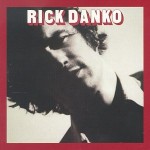
JM: One last thing. Looking at your bio, I noticed that you worked with Rick Danko on his debut solo album, which wasn’t too long after The Band broke up. What was that experience like? Where was his mind at? What do you remember from that?
GB: Rick was a wonderful man, a very upbeat character. I think I met Rick through Ronnie Wood. I’ve been close with Ronnie for years, since his days in The Faces. So I think I met Rick when we were all living down in Malibu for a period.
That album was a wonderful thing. He’d signed with Clive Davis and Arista. Rick just said, “I want you and Blondie Chaplin”, who had been a member of The Beach Boys, coincidentally, and sang the lead on “Sail On, Sailor”. He said, “Would you guys do the backing vocals?” and of course, “Hell yes”. That was done at Village Recorder. We not only did that album, but I seem to remember that we started on the next one. You know, I didn’t really know the rest of the members of The Band, but we were of course huge fans, and actually had gigged with The Band one time in Amsterdam very early on, I think ’71 or ’72. Sorry to lose Rick. We’ve lost a lot of people on this path, and Rick was a great talent.


Great read. Brought back fond memories. Thanks for the great interview!